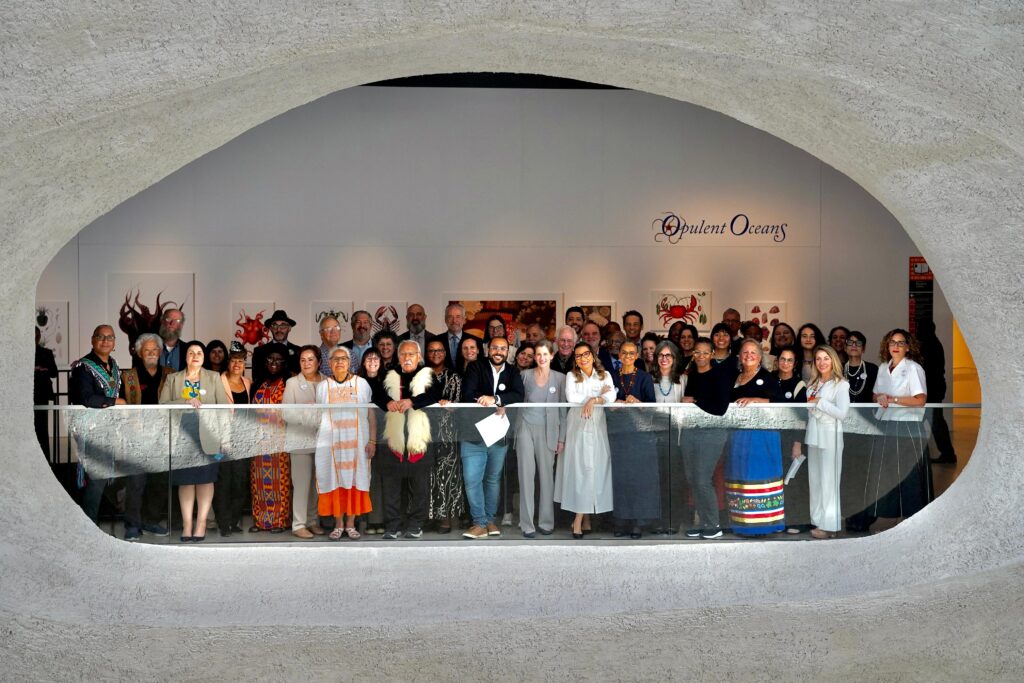
Credit: Fernando Donasci / MMA
Every New York City Climate Week serves as a kind of prelude to the UN Climate Conferences (COPs). In the year Belém will host COP30 — the first to take place in the Amazonian Rainforest — Brazil gained even more prominence in global discussions.
The Arapyaú Institute participated in the event with the goal of giving visibility to nature-based national solutions, promoting an action-oriented agenda, and steering the debate on forest restoration and food agrosystems — strategic areas for the country to reduce its greenhouse gas (GHG) emissions.
“This is a crucial moment to position Brazil as a leader in sustainable economic transition, since we have solid and scalable examples in forest restoration, regenerative agriculture, circular economy, mining, and carbon, among other areas,” says Lívia Pagotto, Institutional Director of Arapyaú.
Together with Instituto Itaúsa and Página22, the organization launched the second edition of the report Brazil’s Climate and Nature Solutions, which highlights how the country has been building concrete responses to the climate crisis. The document expands the analysis of ongoing initiatives and provides a valuable contribution to the international debate around a fair, regenerative, and low-carbon economy.
At the American Museum of Natural History, Arapyaú was present at the conclusion of the Global Ethical Stocktake dialogues, which brought together leaders from various sectors and countries to discuss the ethical foundations that should guide international decision-making on climate issues. This initiative led by the UN and the Brazilian Government, strongly driven by Marina Silva, Minister of the Environment and Climate Change, unfolded through six meetings across six continents over recent months, gathering ideas on how to address biodiversity loss, the climate crisis, and major social challenges.
Many of these themes also emerged at the Concordia Summit, a global forum bringing together leaders from governments, businesses, civil society, and philanthropy to discuss impactful solutions. Speaking at the event — which focused on how to scale innovative climate solutions for Latin America — Renata Piazzon, CEO of Arapyaú, reminded the audience that “the Amazon is not just a forest” and that 70% to 80% of its population lives in urban areas, where the main demand is for quality of life. “Designing solutions for the region requires recognizing its diversity. There is no silver bullet. We must develop sustainable and technological strategies that include Indigenous peoples and other community leaders,” she said.
Planetary health
During NYC Climate Week, the Planetary Health Check 2025 report was also presented. Developed by the Potsdam Institute in collaboration with Planetary Guardians — of which Arapyaú is a council member — the document raises an alarming concern: seven of the nine critical boundaries of the Earth system have already been crossed, one more than last year. The newly transgressed frontier is ocean acidification, worsened by fossil fuel combustion, deforestation, and land-use change, which undermine the oceans’ ability to act as global climate regulators.
Other boundaries that remain in the danger zone include: Climate Change, Biosphere Integrity, Land-Use Change, Freshwater Use, Biogeochemical Flows, and Novel Entities. Only the Ozone Layer and Aerosol Loading remain within safe limits. During the report presentation, scientist Johan Rockström, Director of the Potsdam Institute, emphasized the urgent need for coordinated action among governments, businesses, and civil society to halt degradation and rebuild the planet’s resilience.
“The Earth’s vital signs are on red alert. We must act with the urgency this moment demands. In this context, science must increasingly serve as a beacon to guide our actions,” said Renata Piazzon.